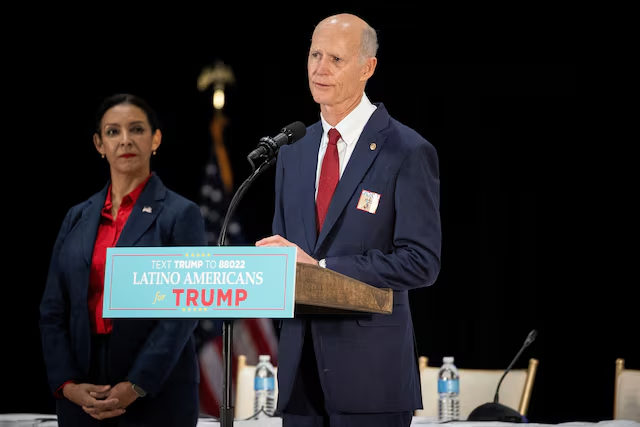Elon Musk Endorses Rick Scott for Senate Majority Leader Amid Republican Leadership Shift
November 10 (Reuters) – Elon Musk, billionaire entrepreneur and known supporter of President-elect Donald Trump, has publicly backed Republican Senator Rick Scott as the next U.S. Senate majority leader. This endorsement comes as the Republican Party is poised to secure a Senate majority following wins in key states during the recent elections.
With Republicans expected to hold at least 52 of the 100 Senate seats, Rick Scott, a former healthcare executive and the wealthiest sitting senator representing Florida, could become the successor to current Senate Republican Leader Mitch McConnell, who announced plans to step down from his leadership position.
On Sunday, Musk posted his support for Scott on social media, saying, “Rick Scott for Senate Majority Leader!” Musk, currently the world’s wealthiest person, has been an outspoken supporter of Trump and endorsed him in July.
In an interview with Fox News, Scott emphasized the need for significant change in Senate leadership. “We can’t keep doing what we’re doing,” he said. “That’s what Donald Trump got elected to do, to bring real change.”
Scott has support from several hard-right Republicans, but it’s uncertain if he can also garner support from the party’s moderates. Both parties will vote for their leaders in January after the new Congress is sworn in. The winner will replace Democrat Chuck Schumer as majority leader if Republicans secure control.
The U.S. House of Representatives majority remains undecided, with Republicans currently holding 213 seats, just five short of the 218 needed to take control. Gaining a majority in both chambers would provide Republicans with stronger leverage to push forward key parts of Trump’s policy agenda, including tax cuts, border security, and energy deregulation.
Currently, Republicans are leading in nine of the remaining uncalled House races, while Democrats lead in seven, according to a New York Times analysis. The remaining races are largely in Western states where vote counting typically takes longer.
If Republicans ultimately control both chambers, Trump’s policy proposals are expected to face fewer roadblocks in Congress, making it more likely that his agenda will advance under unified Republican leadership.
This article was rewritten by JournosNews.com based on verified reporting from trusted sources. The content has been independently reviewed, fact-checked, and edited for accuracy, neutrality, tone, and global readability in accordance with Google News and AdSense standards.
All opinions, quotes, or statements from contributors, experts, or sourced organizations do not necessarily reflect the views of JournosNews.com. JournosNews.com maintains full editorial independence from any external funders, sponsors, or organizations.
Stay informed with JournosNews.com — your trusted source for verified global reporting and in-depth analysis. Follow us on Google News, BlueSky, and X for real-time updates.














